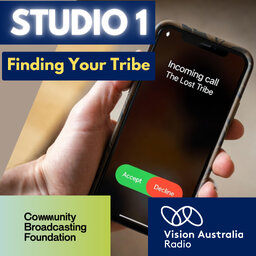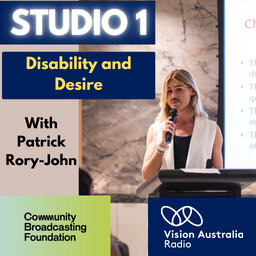Lizzie Eastham and Sam Rickard present Studio 1 - Vision Australia Radio’s weekly look at life from a low vision and blind point of view.
On this week’s show
"TAXI!"
We tackle a subject that is the bane of many Assistance Dog Users, refusal on Taxis or Ride share.
Lizzie talks to Annette (whom we spoke to last year about her book "Molly and Maple") and Janice. They talk about their many experiences; how that affects them personally and what, they believe, should be the consequences for the drivers. Lizzie also tells us of some of her experiences.
We then replay an interview conducted by Peter Greco last year with Olivia Barry from 13Cabs where she outlines a new feature in their booking app which MAY provide a solution to the problem.
Studio 1 welcomes any input from our listeners. If you have any experience or thoughts about issues covered in this episode or believe there is something we should be talking about.
EMAIL: studio1@visionaustralia.org or leave comment on the station’s facebook page: https://www.facebook.com/VARadioNetwork
A special thank you to Annette and Janice for sharing their stories.
Thank you once more to Peter Greco for allowing us use of his interview with Olivia Cooper. You can find the full interview here: https://omny.fm/shows/focal-point/18-dec-2024 (30 min 30 seconds)
You can provide your own feedback to 13Cabs by emailing: customer.care@13cabs.com.au
Vision Australia gratefully acknowledges the support of the Community Broadcasting Foundation for Studio 1.
 Studio 1
Studio 1


